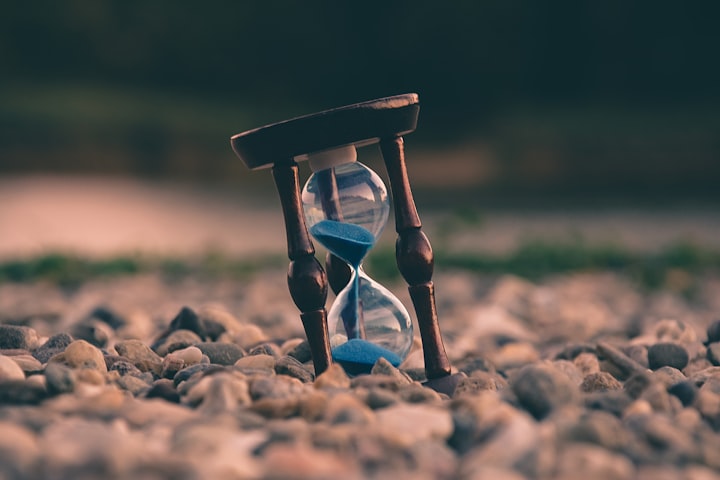Death Doesn't Pay Rent
You're going to want to read the fine print before you let Him stay at your place. He may not ever leave.

It is strange; I admit—that a coming-of-age story should center around Death. This is a story about loss, Death, and how long you should let him stay with you. Trust me; you're not going to want to just 'let him crash at your place' like he says he will. Death is not a good tenant.
Maybe that's my coming-of-age story? In writing this, I've searched memories like the shelves of a library, picking up my most cherished moments and wringing them out for their underlying meaning. I was on a mission to find my shining 'moment'. The moment where I found my true love, saved someone's life, or became a mother? Those were all great, but they weren't that moment.
I didn't want to dig into the part of my mental archive where things really and truly changed for me. That was a poorly written and monstrous story that not even the most daring should endure.
The truth about coming of age is ugly, and it changes a person. For me, it was a red string that seemed to line every relationship I had. A tiny red thread seemed to connect and tear apart almost everything I loved, a fate of Death.
Like a silent and unwanted companion, Death has followed me. At first, it was natural, my Grandparents and my biological father. They were lost to old age and cancer. It was difficult, and I mourned and still miss them dearly to this very day.
Then, at thirteen came the first of many tragedies culminating in the 'curse' that has changed me.
Two friends would be found deceased, electrocuted in a freak accident. They were only fifteen and sixteen years old. I remember hearing my friends' mother as she was being held up and escorted out of her son's funeral. She wasn't speaking, no. She was wailing, mourning like I had never seen before and will never forget. This very raw, guttural moaning, broken apart only by her sobs. It was unearthly and chilling to my thirteen-year-old brain.
From then on, I would lose people at an alarming rate. I was accustomed to Death by being raised with adults, but I knew that teenagers shouldn't die this frequently. Now, people will say that this is to be expected if you are driving fast on the interstate, drinking underage, or dealing with drugs or mental health issues. And they're probably right.
But I had lost more people I wanted to remember. Some to car accidents, overdoses, infections, drownings. Others to mental health battles and cancer.
Meanwhile, somewhere in my brain, something had switched on. I realized I was the common denominator somehow. My curse was born then, at that very moment. I felt as if Death had a personal vendetta against me and was out for revenge.
Why, you ask? Definitely some unknown cosmic reason I had yet to discover.
I tried to keep it to myself, only saying it as a self-deprecating side comment as to why I wasn't dating or why I had only a handful of friends. But inside, I had changed. I knew that Death was part of life, but I felt it had taken up residence in my life. Death had pulled out a chair, drank my beer, and fucking cursed me with its presence.
Death would strike me again, this time with his version of a knockout. He arrived swiftly, and his footsteps were silent. In one fatal sweep, Death stole my friend, my muse, my place of refuge, my love.
There were no more funerals for me. I wanted to be alone, not celebrate life. I couldn't celebrate a life that shouldn't have been taken. I couldn't hear the wails of a parent losing a son again.
I wanted to pretend it didn't happen; they were on vacation, is all. They were taking a trip around the world. That was palatable and easy.
Many of us don't want to admit, let alone share, the darker moments that changed us. Why would we? At their very best, those moments are uncomfortable and ugly. They're unspeakable, horrific, and traumatizing at their worst. We go on, try to grow from it, and file it away to the best of our ability. Well, at least that was what I did to cope with the pain. That was how I was taught to deal with any inkling of distress or trauma—say you've dealt with it and stuff it down into the darkest corners of yourself.
"You'll be fine. Some people have been through worse and do better, Vonne."
So, that's what I did. I did this for far longer than I'd like to admit.
Eventually, you run out in corners and places to hide those skeletons and all that pain. It begins to bubble up, up, up, into that familiar knot in your stomach.
And before you know it, you're sitting across from a skeleton with a scythe brandishing your beer.
About the Creator
Vonne Vantablack
An unreliable narrator with a knack for telling tall tales.
IG @vonnevantablack
“In sterquiliniis invenitur”






Comments
There are no comments for this story
Be the first to respond and start the conversation.